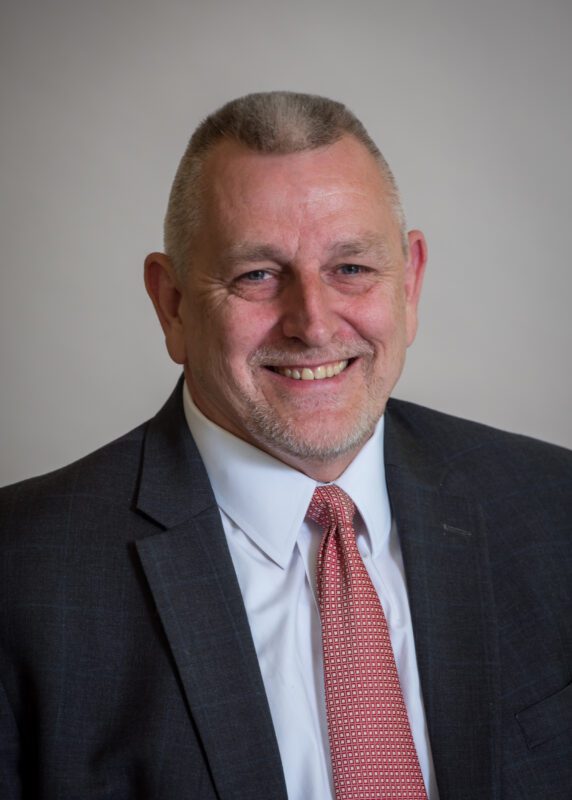
The finalists for WashingtonExec’s Chief Officer Awards were announced April 15, and we’ll be highlighting some of them until the event takes place virtually May 27.
Next is Chief Information Officer Award finalist Dennis Lauer, who’s CIO at Cadmus. Here, he talks proud career moments, overcoming career struggles, career turning points and more.
What has made you successful in your current role?
It’s all about the people I work with — they are the foundation. Having the confidence of the executive leadership team and their commitment to resources is crucial, the multidisciplined CIO team makes it all happen, and our engaged stakeholders keep us driving to take the next, most innovative step.
What was a turning point or inflection point in your career?
There were several. I was given my initial opportunity at the U.S. Agency for International Development by M. Peter McPherson, the administrator of USAID under Ronald Reagan, and that opened the door to everything that’s followed.
On-the-job and formal training offered by USAID were huge turning points early in my career, as were the lessons from my excellent mentors, former USAID CIO John Seufert and CISO Philip Heneghan. Midway through my career, I was selected as the first CIO of the Millennium Challenge Corp., my first C-level position in the U.S. government. Most recently, I transitioned to the private sector after 30+ years.
What are you most proud of having been a part of in your current organization?
I am most proud of enabling Cadmus to achieve our mission to help solve the world’s most challenging problems and strengthen society and the natural world.
Specifically, we’re enabled our data scientists and subject matter experts with tools and platforms that have given them access to capabilities not previously imaginable — supporting clients in environmental protection, clean energy, infrastructure, community engagement, and basically limitless other applications.
In addition, I am also proud of leading my team in creating a platform that provides our C-suite real-time business intelligence to govern the firm. This project was technically complex and required broad executive commitment. The outcome of this initiative is increased revenue, win rates and reduced project losses. The platform is used daily by the CEO to run the firm.
What are your primary focus areas going forward, and why are those so important to the future of the nation?
I am developing methodologies, solutions, predictive analytics and enabling technology in support of our scientists and subject matter experts to solve public safety, critical national energy and transportation infrastructure challenges (e.g. location of charging stations), smart cities/real estate trends (e.g. building electrification simulators) and the adoption of energy-efficient and clean-energy technology, to name just a few.
Another major focus is applying analytics to disaster preparedness to ensure that, when disasters can’t be avoided, their impacts on people’s lives are minimized and increase the resiliency of those impacted.
Looking back at your career, what are you most proud of?
I am most proud of the fact that throughout my career I have been able to apply my role in IT to make a difference in people’s lives around the world. At USAID, as part of the Africa Bureau, I worked on the Famine Early Warning System, particularly in support of efforts around the famine in Ethiopia in 1985, the drought in southern Africa in the early 1990s, and the Rwandan genocide. \
As I transitioned to the Millennium Challenge Corp. and the Overseas Private Investment Corp., I was able to use my experience to support countries transition from developing nations to self-reliance. At Cadmus, I am supporting energy and transportation infrastructure planning, environmental protection, disaster preparedness, and risk reduction to continue to solve the world’s most critical challenges.
I am fortunate to have been given the opportunities to use IT to truly impact the quality of life of those in need domestically and around the world.
What was your biggest career struggle and how did you overcome it?
One of the biggest challenges for any IT professional is being able to identify, communicate and translate business requirements into technical solutions. This holds true for me as well. I have made several major transitions during my career and have had to learn each organization, its culture and specific business requirements to implement successful IT solutions.
To overcome the communication divide between business and IT, I applied the principles I learned as an executive —leading people and change, building coalitions, driving toward results and using business acumen.
What’s your best career advice for those who want to follow in your footsteps?
Surround yourself with great people and get out of their way.

